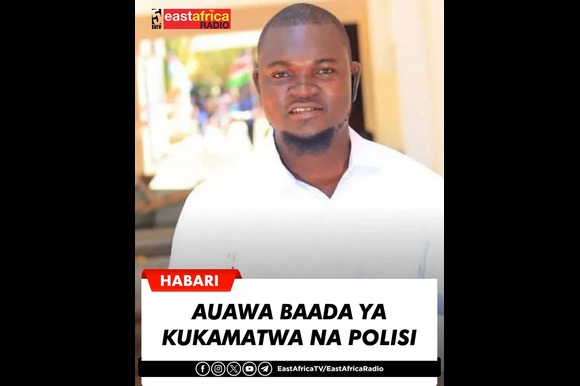A Kenyan blogger who passed away while in police custody suffered a head injury, and a post-mortem examination suggests that his death was likely due to assault.
This finding contradicts police assertions that Albert Ojwang “sustained head injuries after colliding with a cell wall.”
His death has ignited significant outrage across Kenya, with human rights organizations calling for police accountability. Mr. Ojwang, aged 31, was arrested following a complaint from the deputy police chief, who accused him of damaging his reputation on social media.
“The cause of death is unequivocal; head injury, neck compression, and various injuries across the body indicate assault,” stated state pathologist Bernard Midia.
The police have yet to respond to these findings. Mr. Ojwang, a digital content creator who microblogged on X and Facebook about current political and social matters, was apprehended in Homa Bay, a town in western Kenya, on Friday.
He was detained due to a post on X that was reportedly critical of Deputy Inspector General of Police Eliud Lagat.
Subsequently, he was transferred over 350 kilometers (220 miles) to the capital, Nairobi, and booked into the Central Police Station on Saturday.
Authorities claimed he was later discovered unconscious in his cell with self-inflicted wounds.
However, an autopsy performed by five pathologists, who issued a unanimous report, indicated that Mr. Ojwang had significant head injuries, neck compression, and multiple soft tissue injuries. Dr. Midia, who led the pathologist team, stated that Mr. Ojwang did not injure himself against the wall, as the police had claimed in a statement on Sunday.
He explained that if Mr. Ojwang had done so, the injury patterns would differ, and frontal bleeding on the head would be evident.
“However, the bleeding we observed on the scalp… on the skin of the head was distributed, including on the face, sides of the head, and the back of the head,” Dr. Midia remarked during a press conference.
There were numerous soft tissue injuries distributed throughout the body, affecting the head, neck, upper limbs, trunk, and lower limbs… these injuries were inflicted externally,” he stated.
The injuries aligned with “external assault,” and pathologists noted indications of a struggle.
Mr. Ojwang’s father, Meshack Ojwang, has reached out to President William Ruto for assistance in seeking justice for his son.
“As a taxpayer, I ask for your help. The officers who collected my son observed our modest home and presumed we were insignificant,” the father expressed.
Ruto has yet to provide a response.
The Digital Content Creators Association of Kenya honored Mr. Ojwang, stating: “Albert was not just a content creator – he represented the youth, a symbol of resilience, and embodied the aspirations and dreams of a generation that leverages digital platforms to drive change. His legacy will endure.” Faith Odhiambo, president of the Law Society of Kenya (LSK), remarked that the autopsy report clearly indicated that Mr. Ojwang had been “tortured” and “brutally murdered” while in police custody.
“We will persist in applying pressure until every officer involved is held accountable. We will not tolerate further excuses,” Ms. Odhiambo asserted.
Veteran opposition leader Raila Odinga has denounced Mr. Ojwang’s “horrific” death, stating it contributes to a troubling trend of “young and defenseless Kenyans whose lives have been cut short, in brutal and senseless ways, at the hands of the police.”
Inspector-General of Police Douglas Kanja previously suspended several officers who were on duty during Mr. Ojwang’s death.
Kenya’s Independent Policing Oversight Authority (IPOA) has initiated an investigation into his death. However, human rights organizations have called for more decisive action, labeling the blogger’s death as a potential effort to intimidate and silence the digital community.
A group of activists gathered outside the Nairobi City mortuary on Monday, holding placards and chanting “Stop killing us,” where Mr. Ojwang’s body is currently stored.






